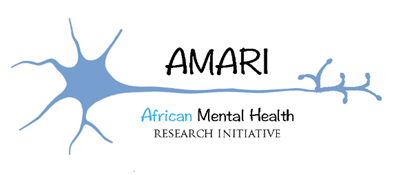Zimbabwe Fellows ARTICULATE Dialogue
The AMARI Zimbabwe fellows held their periodic ARTICULATE dialogue session on the 19th of April 2018 at the University of Zimbabwe Research Support Centre. The main agenda of the dialogue was to deliberate on the thematic areas for the Zimbabwe edition of the ARTICULATE Mental Health documentary. In attendance together with the fellows were, the AMARI Director - Prof Dixon Chibanda, AMARI Programme Manager - Dr Rosemary Musesengwa and representing the ARTICULATE documentary production team - Linette Frewin.
Addressing the fellows, Prof Chibanda advised them on pertinent devices that can ensure sustainability of a researcher which include the importance of broadening their scope of research and not limit themselves to psychiatry, the importance of publications and the importance of telling their stories to the world which he noted is only through public engagement.
“A researcher should always think outside their boundaries, do not be restricted to psychiatry, opportunities will only come to those who look for them. Public engagement is important as it will make your research exciting, it will also reduce the chances of turning you into a boring scientist, you need to be able to tell your stories to the world,” said Prof Chibanda.
Linette added to Prof Chibanda’s sentiments on the importance of creating visuals that can tell the researcher’s work when she urged the fellows to develop the ability to ‘tie science with real life stories and create something that will communicate the mental health story to policy makers’. She emphasized the need to engage the public and communities at grassroots level for the researchers to be able to make an impact.
ARTICULATE which is part of AMARI’s pubic engagement drive has currently managed to film the mental health documentary chapter for Malawi and production is currently in process. ARTICULATE seeks to take mental health research to communities so that they are better informed. Through this initiative a mental health documentary is being produced which features the four AMARI Consortium countries, that is, Ethiopia, Malawi, South Africa and Zimbabwe. The end objective of ARTICULATE is to tell the mental health story and make it an everyday issue which people can relate to and not stigmatize those affected by mental illnesses. It also seeks to challenge policy makers to be more involved in mental health issues.
The dialogue managed to outline the areas of focus for the Zimbabwe documentary, these thematic areas were guided by the topics of the fellows. The main thematic areas will be Mental, Neurological and Substance abuse.

